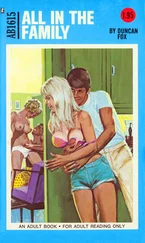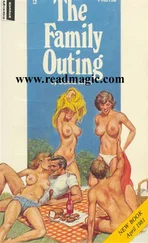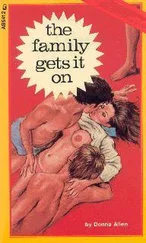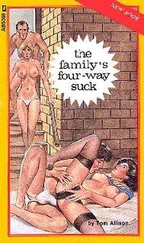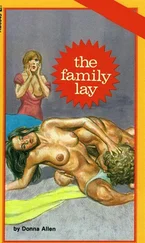“I . . . Pardon?” I must have misheard.
“He’s in the back garden with his remaining brother.” She extends her hand. “I’m Olwen Brawn. And you must be Deborah Fuller.”
Instead of thinking “No, I’m not, and I’d better say so,” I find myself wondering if that’s what’s wrong: it’s only because I think I’m Justine Merrison that nothing in my life makes sense. The moment I admit I’m Deborah Fuller, everything will fall into place.
“Come in, come in.” Olwen Brawn disappears into her house, clearly expecting me to follow. I should make a run for it, before the real Deborah Fuller arrives, but I want to see inside—see if there’s anything in Olwen’s home that explains the feeling I had when I first saw it.
The narrow hall has a wood-laminate floor and pale blue walls covered with framed photographs of dogs—different colors and sizes, but all with the same topiary look, and some wearing rosettes. Unsurprisingly, the house has a strong animal smell.
“Come through,” Olwen calls out. Then she yells, “Yonder Star!” She’s in the living room at the end of the hall, rearranging dogs on a sofa.
Yonder Star? As in “Star of wonder, star of night” from the Christmas carol?
A tiny gray furball of a puppy trots over to me and tries to climb up my leg. “Down, Figgy!” shouts Olwen. To me, she says, “That’s Figgy Pudding pestering you there—Yonder’s little brother. Oh, damn, he’s got mud all over you. He’s just come in from the garden.”
“It doesn’t matter.”
I think back to what Olwen said before: his remaining brother. Okay, I’ve got it: Yonder Star is the name of a puppy. No one would talk about dead brothers in such a cheerful way, so “remaining” must mean the puppies that haven’t yet gone to new homes. Figgy Pudding, presumably, is one of these.
He’s still attached to my leg, looking up at me hopefully. “Hello,” I say. What else can one say to a dog? Not much point asking if he’s read any good books lately.
He jumps up, trying to bite the bottom of my coat, but he can’t reach it.
“You’re all named after bits of Christmas carols, are you?” I whisper to him. “That’s . . . unusual.”
He barks and darts off up the stairs, leaving me free to follow Olwen to the living room.
As well as a sofa, two chairs and a television, there’s a large metal cage, like a room within a room, running nearly the full length of one wall. It’s full of squashed beanbags and stained mats. And more dogs—mainly larger, older-looking ones. On one of the armchairs a chunky puppy—bigger than Figgy Pudding—is vigorously chewing a cushion.
I’m picking up nothing significant inside Germander—no feeling of belonging, no atmosphere. I ought to be relieved, but I’m disappointed. I’m not going to be solving any mysteries today. There will be no reward for hours and hours on the motorway.
Olwen’s living room leads to a narrow galley kitchen with French doors that are standing open. Beyond these, there’s a long, thin garden, all scruffy grass and dog-chewed tennis balls.
I want to ask why the house is called Germander, but Olwen only wants to talk about dogs. “This is him.” She beams and points to the puppy attacking the cushion. “Yonder, don’t chew ! You have to be firm with him about chewing.”
“I’m not Deborah Fuller.”
She stares at me. Laughs. “What?”
“I’m not Deborah. I haven’t come to pick up a puppy.”
“Oh.” Olwen giggles. “I’m sorry, I just assumed—”
“Please don’t apologize. I’m the one who should apologize.”
“If you’re not Deborah, here to collect Yonder, who are you and what do you want? Oh—do sit down! Here, let me shift Beth out of your way. Don’t worry, there’s no hair—they don’t shed. Come on, Bethlehem, off you pop. I sometimes think they forget they’re dogs, the way I spoil them. Go on, go and run around in the garden! Cup of tea? Coffee?”
“No thanks.” I’m finding her lack of suspicion a little unnatural. “It’s very trusting of you to offer me a drink. You don’t know who I am.”
“Oh, you’re a good enough egg.” Olwen smiles. “I can always tell. And . . . well, I’ll be blunt: I’ve still got one puppy to place—Figgy, the one you met in the hall—and I’m desperate to find a good home for him. He’s so bright and sweet-natured, but he was also the littlest of this particular litter—I hate the word runt, I refuse to use it—and so people don’t want him because of all the bilge that gets spouted about how the smallest is likely to have health problems. It’s nonsense.”
Olwen sits in the chair opposite me, scooping Yonder up into her lap. He has to make more of an effort to chew the seat cushion now, but he seems to think it’s worth it.
“Figgy’s a perfectly healthy lovely boy. I mean, you saw him. Did he look like a weak and feeble runt to you?”
“No. He looked . . . fine.” Until today, I wouldn’t have believed myself capable of having this long a conversation about anything to do with dogs.
“He is fine. But all the buyers rejected him in favor of his bigger siblings, and even after Yonder goes, when Figgy’s the only one, people will say, ‘Why’s he the one left over? Why did no one want him? Was he the runt?’ I’m not going to lie to them, but it’s disheartening the way they’re all so stupid .”
“Yes.” Here I can agree wholeheartedly. “I know nothing about dogs—I’m not an animal person, I’m afraid—but the bottomless stupidity of almost everyone you’re likely to meet is deeply depressing.” I gave up work forever because of it.
Olwen laughs. “Well, since you’re evidently not stupid yourself, I won’t try to hoodwink you. If you’re wondering why I offer refreshments to any old stranger who turns up, this is why: Figgy needs a good home. You look like you might have one. And . . .” She shakes her head. “Okay, this is going to sound weird, but when you told me you’re not Deborah, I had this really funny feeling—like a shiver all up and down my spine. I thought, ‘This is Figgy’s new owner.’ Actually, I didn’t even think it—the words were just there, in my mind.”
No. Oh no. That’s not fair. I smile and try to stay calm. The words “I am not Figgy’s new owner” are powerfully present in my mind, and mine counts for as much as Olwen’s. So what if she had a feeling? Feelings are nothing. Do not attach significance to this.
“I don’t want a dog,” I say. “That’s not why I came.”
I’ve nearly finished telling Olwen about my peculiar North Circular experience when my phone rings in my pocket. “Sorry,” I say. “I’d better . . .”
“No problem.” She hauls herself out of her chair. “I’m going to nip upstairs and retrieve Figgy. He’s probably weeing and pooing everywhere, bless him.”
Yes, bless him—as long as he lives in this house, not in mine.
It’s Alex on the phone. “I’ll have to be quick,” I tell him. “I’m midconversation.”
“Did you find her? Is she the one making the calls?”
“Yes, and no, she isn’t. She’s a very nice breeder of . . . odd-looking dogs. Can we talk later?”
“Sure. I just wanted to let you know I’ve been on to the police. They’re coming to talk to us tomorrow and they’ve promised not to send PC Hilton.”
“Great. I’ll see you this evening. Before midnight, with any luck.”
“Here he is!” Olwen bounces back into the room with Figgy under one arm. “Oops, sorry! Didn’t realize you were still talking.”
I make a “no problem” face at her.
“Is that her?” Alex asks. “Who’s ‘he’?”
Читать дальше


